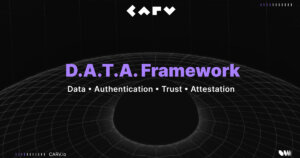 Eigen Foundation pledges 1% of EIGEN token equaling $80M to support Ethereum development
Eigen Foundation pledges 1% of EIGEN token equaling $80M to support Ethereum development Eigen Foundation pledges 1% of EIGEN token equaling $80M to support Ethereum development
The Eigen Foundation aims to sustain and advance Ethereum's core development through its donation.

Cover art/illustration via CryptoSlate. Image includes combined content which may include AI-generated content.
The Eigen Foundation has committed 1% of its EIGEN token supply to the Protocol Guild, a group dedicated to Ethereum Layer-1 research and development.
According to CryptoSlate data, the EIGEN token has a total supply exceeding 1.6 billion. With this pledge, the Protocol Guild could receive up to 16 million EIGEN tokens, valued at approximately $80 million.
The Eigen Foundation stated that the transaction for this pledge will be executed soon.
Supporting Ethereum development
In a Dec. 13 post on X (formerly Twitter), the Foundation explained that the pledge reinforces its goal of supporting the Ethereum ecosystem’s growth and sustainability through funding the Guild.
The Protocol Guild plays a crucial role in Ethereum’s development by funding projects and contributors. It currently includes over 180 members from 29 teams across the crypto space, supporting initiatives such as client development, research, specifications, testing, and coordination.
The Foundation highlighted the ongoing advancements in Ethereum, such as zk-proofs, decentralized storage, and rollups. It expressed pride in supporting builders shaping the future of Ethereum through the Protocol Guild.
This pledge aims to ensure the Protocol Guild continues providing consistent funding for Ethereum’s decentralized infrastructure maintainers. It stated:
“At Eigen Foundation, we share the belief that a decentralized future depends on strong, well-supported infrastructure. By pledging 1% of EIGEN supply, we aim to help the Protocol Guild sustain Ethereum’s core development and maintain its decentralized future.”
EigenLayer, the Foundation’s flagship platform, allows users to restake ETH to secure third-party networks. According to DeFillama data, the protocol is the third-largest DeFi protocol, with the total value of assets locked on the platform amounting to $17.97 billion.
Funding nears $100 million
According to Dune Analytics data, the Protocol Guild has already received approximately $95 million in donations, putting it on the verge of reaching $100 million. This total does not include the EigenLayer pledge.
Notable contributions include $27.5 million from the Ether.fi Foundation and $20.9 million from Taiko Labs. Other donors, such as the LayerZero Foundation and Arbitrum Community, have contributed $7.6 million and $3.2 million, respectively.
Dec. 17 UPDATE: Updated headline and second paragraph to the correct value of the pledged EIGEN token.







 Elon Musk
Elon Musk 















































































 ETH
ETH

